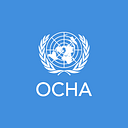Humanitarian needs outstripping response at “alarming rate”
The level of global human suffering has increased at an alarming rate in the past six months. A staggering 141 million people now urgently need humanitarian help — an increase of 12 million people compared with December 2016.
The United Nations and partners can assist more than 100 million of these people. But to provide this support, we are appealing for the highest amount of funding ever: US$23.5 billion
Millions of people are trapped in perpetual cycles of need and vulnerability due to protracted, violent crises and recurrent man-made and natural disasters, combined with extreme poverty and structural fragility in countries in Africa, Asia and the Middle East.
Millions more face starvation in north-east Nigeria, Somalia, South Sudan and Yemen.
Donors have contributed $ 6.2 billion to UN-coordinated humanitarian appeals so far this year. Had they donated that same amount 10 years ago, the entire humanitarian appeal for 2007 would have been covered. But the tragic reality is that this amount covers only one quarter of what is urgently needed now.
Over the past 10 years, the volume, cost and length of humanitarian assistance have grown dramatically, mainly due to the protracted nature of crises, growing inequality, heightened fragility, climate change and population growth. This is why humanitarian and development partners have joined efforts to collectively and tirelessly pursue the shared moral imperative to prevent crises and sustainably reduce need and vulnerability at its source. When we reduce risk and vulnerability, we improve the lives of the people most in need. By doing this, we ensure that development progress is accessible to all, including crisis-affected communities.
“Crisis is not coming: it is here today, on our watch”
Crisis is not coming, it is not looming: it is here today, on our watch. But ordinary people are paying the price. Yemen is a prime example: it has become the world’s largest food security crisis. More than 17 million people are food insecure, 6.8 million of whom are just one step away from famine.
This year, the UN and partners have reached 5.8 million people in Yemen with aid and sustained assistance to at least 3 million people each month. But millions more people are facing risks to their safety and basic rights, struggling to survive.
Yemen is also in the grip of an unprecedented cholera outbreak that has claimed the lives of over 1,000 people. Even basic medical treatment that we take for granted is no longer available. The recent arrival of 67 tons of critical WHO-provided medical supplies in Yemen is welcome news, and it is the largest planeload of medical goods to arrive in that country since conflict escalated in March 2015. But funding is urgently needed to buy more essential medicines, as the few operational hospitals are short of drugs. Doctors and nurses have not been paid in months; they need incentives to return to work.
Let us not forget that cholera and malnutrition are interconnected; weak, hungry people are more likely to contract cholera and less able to survive. Of the more than 140,000 suspected cholera cases in Yemen, half of them are children. More than 100 children are contracting cholera every hour, and almost half a million children under age 5 are suffering from severe acute malnutrition. We must invest in Yemen’s future by helping more children to survive.
This devastating situation is replicated elsewhere, with multiple protracted crises around the world overstretching our capacity to respond with our current level of resources. It is not only a moral duty but also absolutely feasible to stem the tide of famine in north-east Nigeria, Somalia, South Sudan and Yemen. Donors have provided $1.9 billion for critical interventions in food security, health, nutrition, and water, sanitation and hygiene in these countries. But a $3 billion gap remains. We are ready to scale up the response to avert a catastrophe, but funds are required immediately. Allowing famine to unfold is a choice; we must choose to stop it.
In the last six months, the UN has co-hosted three high-level pledging events for major emergencies in Nigeria and the Lake Chad region, Syria and the region, and Yemen. Donors pledged $11.4 billion at these events, but most of the money has not come through as yet. It is critical that all outstanding pledges are turned into cash as soon as possible so that projects and programmes can urgently scale up.
If they don’t scale up, children who are fleeing Boko Haram violence in the Lake Chad region will face a bleak future of illiteracy, malnutrition, the risk of forced recruitment into armed groups and premature death.
Today’s combined global humanitarian requirement of a record $23.5 billion is an increase of $1.3 billion from the appeal for 33 countries in the December 2016 Global Humanitarian Overview. This is a stark reflection of today’s desperate level of humanitarian suffering.
Click here to access the 2017 Global Humanitarian Overview
Click here to support humanitarian response worldwide. Your donation will enable us to deliver timely assurance in crisis-affected countries.

